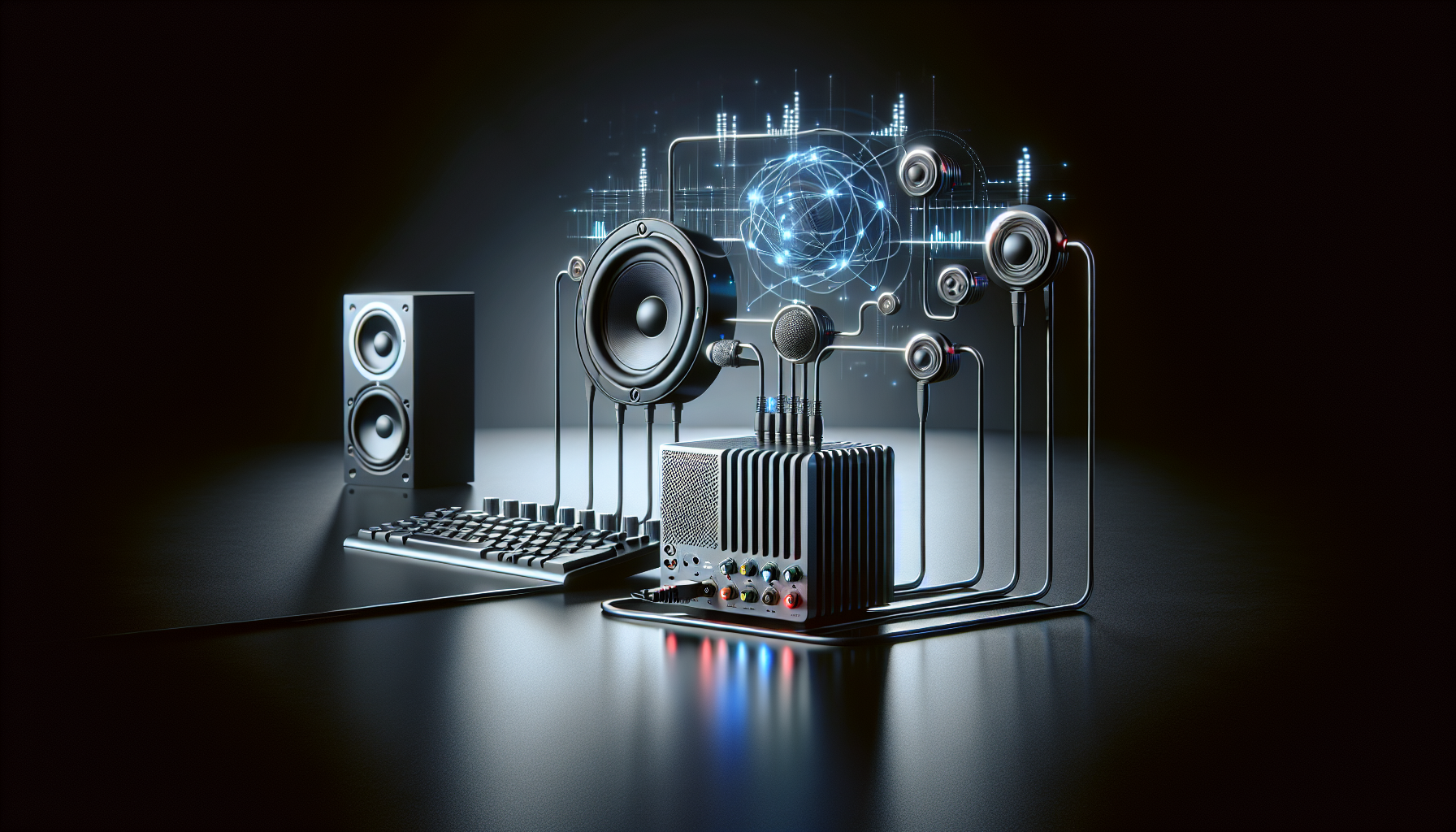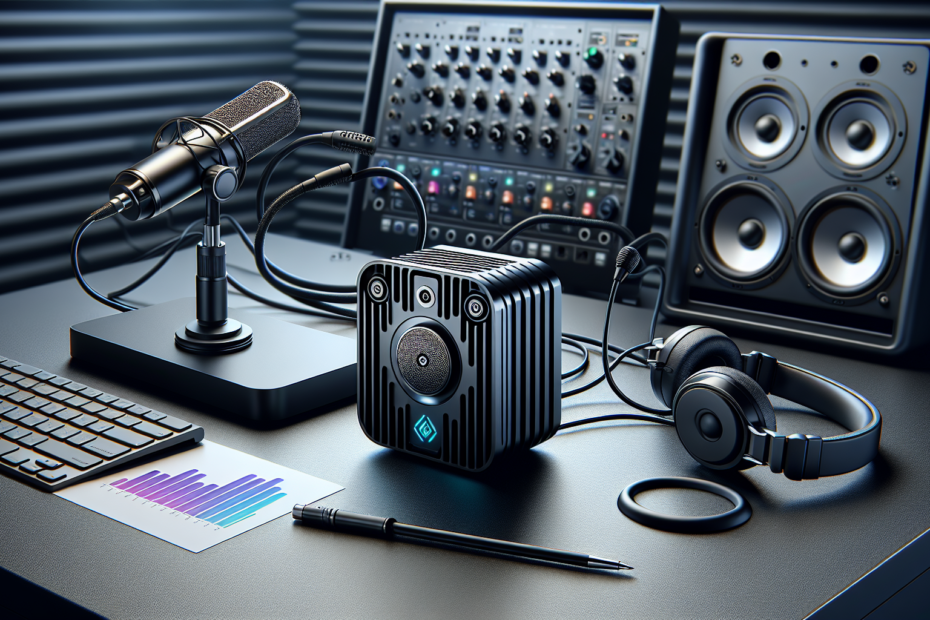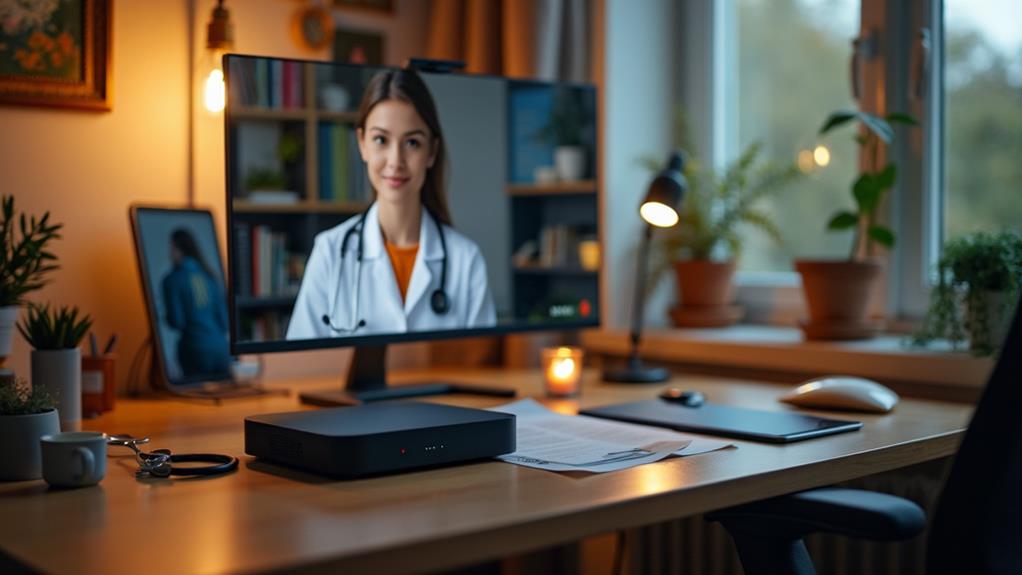



Are you a music enthusiast wondering if mini PCs are suitable for your audio production needs? Well, look no further, because we have the answer for you! In this article, we will explore the capabilities of mini PCs for audio production and discuss whether they can deliver the performance and functionality required to create high-quality sound tracks. So, if you’re ready to uncover the potential of these compact computing wonders, let’s jump right into it!
Processor Power
Types of processors used in mini PCs
When it comes to mini PCs, there are various types of processors that are commonly used. These processors are typically designed to provide a balance between performance and power efficiency, making them ideal for compact systems like mini PCs. Some popular processor brands that you may come across in mini PCs include Intel and AMD. Within these brands, you will find different models with varying levels of power and capabilities.
Comparing processor power of mini PCs to traditional desktops
While mini PCs may not have the same processing power as high-end traditional desktops, they still offer impressive performance for audio production tasks. The processors used in mini PCs are often capable of handling demanding audio processing tasks, such as real-time effects and multi-track recording. However, it is important to note that the specific processor model and its accompanying specifications will ultimately determine its performance capabilities. Despite this, mini PCs can still provide a reliable and efficient platform for audio production.
Effects of processor power on audio production tasks
The processor power of a mini PC plays a crucial role in determining its ability to handle complex audio production tasks. A more powerful processor can handle resource-intensive tasks, such as real-time plugins, audio effects, and virtual instruments, without any major issues. With a capable processor, you can achieve low latency, smooth playback, and high-quality audio processing. However, it is essential to ensure that the processor meets the recommended minimum requirements of the audio production software you plan to use.
Memory and Storage
RAM capacity in mini PCs
Mini PCs typically come with varying RAM capacities, ranging from 4GB to 32GB or more. The amount of RAM you choose for your mini PC will depend on the specific audio production tasks you plan to undertake. For basic audio editing and recording, 8GB of RAM should be sufficient. However, if you plan on running multiple virtual instruments and complex projects, it is recommended to have at least 16GB or more of RAM to ensure smooth performance.
Effect of RAM on audio production
RAM plays a significant role in audio production, particularly in handling large projects and running multiple plugins simultaneously. Having an adequate amount of RAM allows your system to store and handle the audio data efficiently, reducing the risk of audio dropouts or latency issues. It also enables you to keep multiple projects open simultaneously, facilitating a more efficient workflow. Thus, investing in a mini PC with sufficient RAM capacity is crucial for a seamless audio production experience.
Types of storage options in mini PCs
Mini PCs usually offer various storage options, including solid-state drives (SSDs) and hard disk drives (HDDs). SSDs are known for their faster read and write speeds, resulting in quicker boot times and improved loading times for audio files and software. On the other hand, HDDs offer larger storage capacities at a more affordable price point. Mini PCs often provide a combination of both SSDs and HDDs, allowing you to benefit from the speed of SSDs and the cost-effectiveness of HDDs.
Considerations for storage space in audio production
When it comes to audio production, storage space is of utmost importance. Audio files can quickly eat up storage capacity, especially when working on large projects with multiple tracks and high-quality recordings. Therefore, it is essential to consider the amount of storage available in the mini PC you choose. Ideally, opting for a mini PC with ample storage capacity or the ability to expand storage through external devices will ensure that you have enough space for all your audio files, plugins, and software libraries.

Portability and Space Saving
Advantages of mini PCs in terms of portability
One of the key advantages of mini PCs for audio production is their portability. Mini PCs are compact and lightweight, making them highly portable compared to traditional desktop computers. This portability allows you to easily move your audio production setup to different locations, whether it’s a studio, on-site recording session, or a live performance venue. Additionally, mini PCs can be easily packed in a backpack or carry case, making transportation hassle-free and convenient.
Space-saving benefits of mini PCs for audio production setups
In addition to their portability, mini PCs also offer significant space-saving benefits. Traditional desktop computers often require a considerable amount of desk space, especially when considering the additional monitor, keyboard, and other peripherals. Mini PCs, on the other hand, have a compact form factor and can be mounted behind a monitor or even attached to the back of a TV. This frees up valuable desk space, allowing you to create a more efficient and clutter-free audio production setup.
Connectivity Options
Availability of USB ports and audio interfaces
When it comes to audio production, connectivity options are crucial for connecting various audio interfaces, MIDI controllers, and other hardware peripherals. Mini PCs generally provide an ample number of USB ports to accommodate these devices. However, it is essential to consider the type and speed of USB ports available on the mini PC. USB 3.0 or higher ports are preferred for faster data transfer rates, minimizing latency issues and ensuring smooth communication between your audio production equipment and the mini PC.
Wireless connectivity options
Wireless connectivity has become increasingly important in the audio production world. Mini PCs often offer built-in Wi-Fi and Bluetooth capabilities, allowing you to connect to wireless networks, audio devices, and controllers without the need for additional adapters. This wireless connectivity enables seamless integration with wireless headphones, speakers, and MIDI controllers, providing you with flexibility and convenience in your audio production workflow.
Compatibility with audio production equipment
Before investing in a mini PC for audio production, it is vital to ensure compatibility with your existing audio production equipment. Check that the mini PC has the necessary ports and connectors to connect your audio interfaces, MIDI controllers, microphones, and other hardware devices. Additionally, consider any specific driver requirements or software compatibility to ensure smooth integration between your audio production equipment and the mini PC.

Operating System
Supported operating systems for mini PCs
Mini PCs typically offer a range of supported operating systems, including Windows, macOS, and Linux-based options. The choice of operating system for audio production depends on personal preference and software compatibility. Windows is widely used in the audio production industry and offers extensive software compatibility. macOS, known for its stability and user-friendly interface, is also popular among audio producers. Linux-based operating systems, such as Ubuntu Studio, provide a free and open-source alternative with a focus on multimedia production.
Considerations for audio production software compatibility
When selecting a mini PC for audio production, it is vital to ensure that your preferred audio production software is compatible with the chosen operating system. Most popular audio production software applications are available for both Windows and macOS, but it is always recommended to verify compatibility before making a purchase. Additionally, consider any system requirements specified by the software developers to ensure that the mini PC meets or exceeds those requirements for optimal performance.
Performance of audio production software on mini PCs
The performance of audio production software on mini PCs can vary depending on the specific hardware specifications and operating system. Generally, mini PCs with modern processors, ample RAM, and SSD storage can handle audio production software with ease. However, it is important to note that resource-intensive projects and the use of numerous plugins may require more powerful hardware configurations. It is advisable to check the system requirements of your chosen audio production software and match them to the specifications of the mini PC to ensure smooth performance.
Audio Output Quality
Built-in audio capabilities of mini PCs
Mini PCs typically come equipped with built-in audio capabilities, allowing you to connect headphones, speakers, or studio monitors directly to the system. While the built-in audio capabilities may be adequate for basic audio editing or casual listening, they often lack the high-quality audio output needed for professional audio production. The audio outputs on mini PCs may have limitations in terms of dynamic range, signal-to-noise ratio, and overall audio fidelity. Therefore, for professional audio production, it is recommended to use external audio interfaces for higher quality audio output.
Comparison with external audio interfaces
External audio interfaces provide enhanced audio quality and additional connectivity options for audio production. These interfaces allow for higher resolution audio playback and recording, as well as providing specialized features like microphone preamps, instrument inputs, and multiple outputs. While mini PCs may lack these additional features, they can still be easily integrated with external audio interfaces via USB or other connections. Adding an external audio interface to your mini PC setup will greatly improve the audio output quality and overall audio production capabilities.
Effects on audio production and recording quality
Using high-quality audio output devices, such as external audio interfaces, ensures accurate monitoring and playback during audio production. This is particularly crucial when making critical decisions regarding levels, EQ, and effects. By utilizing professional-grade audio output devices, you can experience a more detailed and accurate representation of your audio, leading to better mixes and recordings. The improved audio production and recording quality will ultimately enhance your overall workflow and result in higher-quality final productions.
Noise and Cooling
Potential noise levels of mini PCs
One concern when using a mini PC for audio production is the potential for increased noise levels. Due to their smaller form factor, mini PCs often utilize compact cooling systems, such as fans, to dissipate heat generated by the processor. While modern mini PCs have become more efficient in noise reduction, it is advisable to choose models specifically designed for low noise operation or opt for passive cooling systems. This will minimize the noise generated by the mini PC, ensuring a quieter audio production and recording environment.
Effect on audio production and recording environments
Excessive noise from computer fans or cooling systems can interfere with audio production and recording, especially when using sensitive microphones or recording in a quiet environment. The noise generated by a mini PC can be picked up by microphones, resulting in unwanted background noise or interference. Therefore, choosing a mini PC that prioritizes quiet operation is crucial to maintain a pristine recording environment and ensure the highest audio quality in your productions.
Cooling systems in mini PCs and their impact on performance
While cooling systems in mini PCs are essential for preventing overheating, it is important to consider their impact on performance. Overheating can lead to reduced processor performance and potential system instability, affecting the overall performance of your audio production tasks. Therefore, it is recommended to select a mini PC that incorporates an efficient cooling system capable of maintaining optimal operating temperatures. Proper cooling ensures consistent performance and minimizes the risk of system slowdowns or audio glitches during demanding audio production sessions.
Cost-Effectiveness
Price range of mini PCs compared to traditional desktops
Mini PCs generally offer a more affordable price range compared to traditional desktop computers. Their compact size and reduced need for additional peripherals contribute to lower overall costs. While high-end mini PCs with powerful processors and ample storage can approach the price range of traditional desktops, there are still budget-friendly options available that meet the requirements of most audio producers. When considering the cost, it is important to weigh the intended use, required performance, and desired longevity of the mini PC.
Considerations for budget-conscious audio producers
For budget-conscious audio producers, mini PCs provide a cost-effective solution without compromising on performance. By carefully evaluating the required specifications for your audio production tasks, you can choose a mini PC that meets your needs without unnecessary expense. It is essential to prioritize the key components such as processor power, RAM capacity, and storage options based on your specific requirements. By focusing on essential features, you can find a mini PC that provides the necessary performance while staying within your budget.
Long-term cost savings of mini PCs
Apart from the initial cost, mini PCs can also provide long-term cost savings. Due to their smaller form factor, mini PCs consume less energy compared to traditional desktop computers. This translates to lower electricity bills over time, making mini PCs a more cost-effective choice for continuous audio production. Additionally, mini PCs are often easier to upgrade, allowing you to adapt to changing technology and extend the lifespan of your system without needing to replace the entire unit. These long-term cost-saving benefits make mini PCs an attractive option for audio producers looking to optimize their budget.
Expandability and Upgradability
Options for expanding hardware capabilities
While mini PCs have a smaller form factor, they still offer options for expanding hardware capabilities. Most mini PCs have available slots for additional RAM, storage, and expansion cards. This allows you to upgrade your system over time to meet the evolving demands of audio production. By choosing a mini PC with accessible and upgradable components, you can future-proof your setup and ensure that your system can handle more demanding tasks or accommodate new technologies as they emerge.
Compatibility with audio production peripherals
Compatibility with audio production peripherals is an essential consideration when selecting a mini PC. Ensure that the mini PC has the necessary ports and connectivity options to connect your preferred audio interfaces, MIDI controllers, and other peripherals. Additionally, verify that the mini PC’s operating system and drivers are compatible with your peripherals to avoid any compatibility issues. By ensuring compatibility, you can seamlessly integrate your existing audio production peripherals into your mini PC setup without any limitations.
Upgrade potential of mini PCs
The upgrade potential of mini PCs is a significant advantage, especially for audio producers who anticipate future hardware requirements. Mini PCs often allow for easy upgrading of components such as RAM and storage, enabling you to enhance the performance and storage capacity of your system as needed. The ability to upgrade individual components without replacing the entire system is not only cost-effective but also ensures that your mini PC can adapt to the latest audio production technologies and software advancements, prolonging the lifespan of your investment.
Software and Plugin Support
Availability of audio production software for mini PCs
With the increasing popularity of mini PCs, audio production software developers have recognized the demand for compatible software options. As a result, there is now a wide range of audio production software available for mini PCs. Popular digital audio workstations (DAWs) such as Ableton Live, Steinberg Cubase, and Presonus Studio One are fully compatible with mini PC operating systems, offering professional-grade functionality for audio production tasks. Additionally, many plugins and virtual instruments also support mini PC platforms, expanding your creative possibilities.
Compatibility of plugins and virtual instruments
When using mini PCs for audio production, it is essential to ensure that your preferred plugins and virtual instruments are compatible with the system. While most popular plugins and virtual instruments are compatible with both Windows and macOS, it is recommended to verify compatibility with the specific mini PC operating system you plan to use. Some plugins may have specific system requirements or may perform differently on different operating systems, so it is prudent to conduct research or consult the plugin developers for accurate compatibility information.
Support from software developers and online communities
Mini PCs are now well-established as a viable option for audio production, and as such, software developers actively support the platform. Developers often provide regular updates and bug fixes to ensure optimal performance on mini PCs, addressing any compatibility or performance issues that may arise. Additionally, online communities and forums dedicated to mini PC audio production are available, providing valuable resources, tips, and support. Engaging with these communities can help you navigate any challenges, find answers to questions, and maximize your audio production capabilities on your mini PC.
In conclusion, mini PCs can be highly suitable for audio production, offering a balance of portability, power, and cost-effectiveness. While mini PCs may not match the absolute processing power of high-end traditional desktops, they provide ample performance for most audio production tasks. With the right combination of processor power, RAM capacity, storage options, and software compatibility, mini PCs can deliver excellent results in terms of audio quality, workflow efficiency, and overall user experience. Whether you choose a mini PC for its portability, space-saving benefits, or its capability to handle complex audio production tasks, these compact systems can provide a versatile and efficient platform for all your audio production needs.
Disclosure: As an Amazon Associate, I earn from qualifying purchases.







